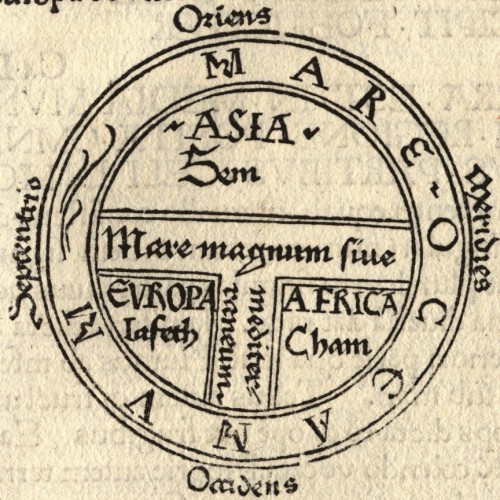On 28th November 2009 Muslims in my town celebrated Eid ul Adha, or Kurman Ait. The festival remembers the prophet Ibrahim’s willingness to sacrifice his son when God ordered him to. Because God sent a ram, so that Ibrahim could have something to sacrifice, every year Muslims sacrifice rams and distribute the meat among family, friends, and the poor.
The Imam who leads the prayer in our local mosque invited me to come there too, to take some meat. They all know that I am a Christian.
How did I meet them? Once I was walking on the street and saw two people with nice beards and brown faces, talking Arabian. I asked them if they were Muslims. One of them was the Imam, and on that day they showed me where they meet for prayer. So I went there occasionally and had nice talks with some of them. They are orthodox Muslims, Sunni, and some of them are natives of my country. With just one exception, they were always friendly and careful when talking about Christianity. I say one exception, because once a guy started to insult Christian beliefs and called us stupid people, because we can believe in the Triunity of God. I asked him: ‘are you hostile now?’ He just went away, but later came back and apologized to me. Nevertheless, we get along quite well.
This time we started to talk about Abraham’s (Ibrahim) faith, and about the sacrifice of the ram, which substituted his son (in the Qur’an says that the son was Ishmael, in the Bible says that the son was Isaac, but that’s not very important). We read the story in both the Bible and the Qur’an. I wondered, why in the Qur’an, when referring to the ram, it is called ‘bithibhin Aaatheemin’ (Surah 37, Al-Saaffat, ayat 107), ‘a momentous sacrifice’ (Yusuf Ali translation), ‘a tremendous victim’ (Pickthal), ‘a Feat sacrifice’ (Shakir). What can be so momentous, tremendous and great about a ram? Their answer was that because such a great prophet was saved through this sacrifice, that this is what makes the ram so great. Someone else said that it was so special because it was sent down from God. Then I talked with them about substitution – the ram was sacrificed to save the life of Ibrahim’s son. I told them that in the Bible, this story is an image of what happened later, on the same mountain, Moria. Isa Messiah was nailed to a cross and died on our behalf, taking our sins and the punishment for them on Himself, because we could never meet God’s perfect standards and gain our way to Paradise by our good deeds, or in any other way. That’s why the only way to know God and get into Paradise is by faith in Isa Messiah.
One of their teachers said afterwards that when Ibrahim brought his son to sacrifice him, it was not to cover his own sins, or to cover someone else’s sins – it was an act of obedience, an act of worship to God. I asked him, how does he look at the fact that a huge part of the Taurat (Torah) of Musa (Moses) has descriptions on how to bring different sacrifices for different sins? Why sin offering? Why burnt offering? Why the guilt offering? All of them were given as commandments, with this purpose: to imprint in people’s minds the truth that without the shedding of blood there is no forgiveness (Hebrews 9.22). All those sacrifices were an image, pointing to the supreme sacrifice, Isa Massih, who takes away the sin of the world (John 1.29).
The meat that they gave me was about 7kg, so I came back to our dormitory and cooked spaghetti with mutton for about 10 other students.


